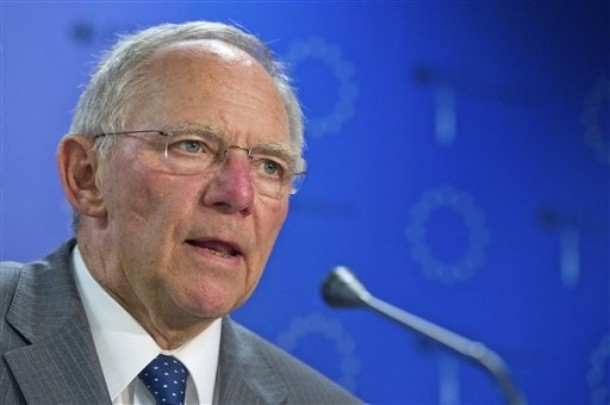
From Michael Birnbaum, the Washington Post: For decades, Germany’s role in Europe has been to supply the cash, not the leadership. With fresh memories of war, the continent was cautious about German domination — and so were the Germans themselves.
But the economic crisis has shaken Europe’s postwar model, and Germany increasingly calls the shots. As countries struggle to pay their debts, only Chancellor Angela Merkel has enough money to haul them out of trouble. And the price Merkel is demanding — more control over how they run their economies — is setting off alarm bells in capitals across the continent. . . .
And although German leaders have sought in recent weeks to soothe others’ fears in advance of high-level meetings in Brussels on Sunday and in coming days, the tone has sometimes sounded pugilistic.
“The question of who could accept a German model has been settled by the market,” said a spokesman for German Finance Minister Wolfgang Schaeuble. “We are really only talking about the details and the extent of the measures, not about their nature.”
At $3 trillion in 2010, Germany’s economy is now half again as large as those of its nearest rivals, Britain and France. Its banks are far less exposed to Greek debt than those in France, insulating it from the effects of a possible Greek default. It has thus far committed $290 billion to a European bailout fund for Greece, Portugal, Ireland and anyone else who needs it — significantly more than any other nation in Europe. . . .
“That’s the predicament of leadership,” said Joschka Fischer, a former foreign minister who has urged Merkel to do more to support the euro. “When Germany acts, there is the fear that Germany will dominate. If Germany doesn’t act, it’s the fear that Germany will withdraw from Europe. . . .”
In Germany, the dissension is raising eyebrows.
“Everybody is calling for leadership,” said the country’s deputy foreign minister, Werner Hoyer, “but no one wants to be led.” (photo: AP)
Image: ap%2010%2023%2011%20Wolfgang%20Schaeuble.jpg
